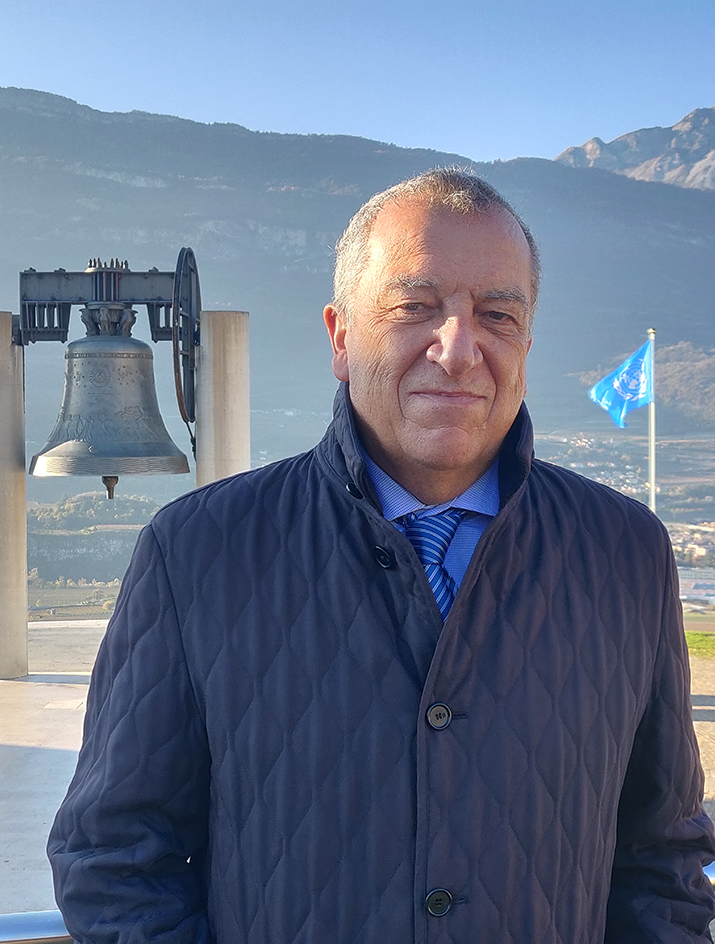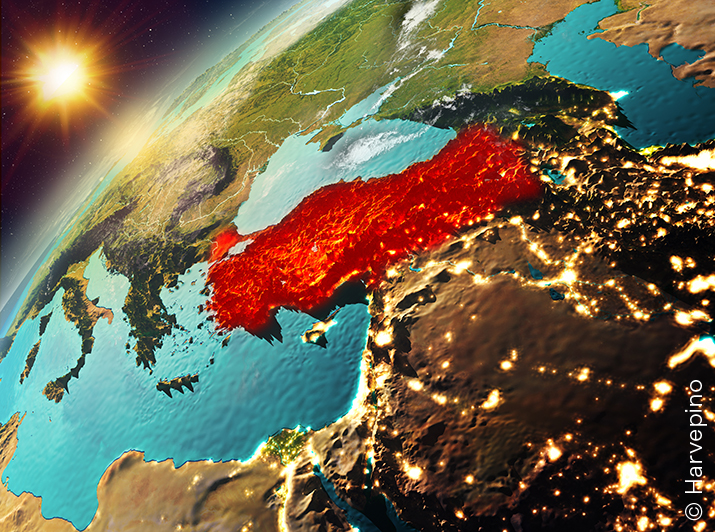Turkish opposition circles have no doubts that the heavy prison sentence (2 years and 7 months) handed down last December to the mayor of Istanbul, Ekrem Imanoglu, represented the premature and unexpected 'kick-off' of the campaign for the presidential elections that, after a period of indecision, would now seem to be definitively set for 14 May.
This belief is based on two closely related factors. First of all, the huge popularity of the character now threatened with political disqualification, the first exponent of a non-governmental party to propel himself, in 2019, to the leadership of the country's most important city at the end of a tormented path characterised by a double vote. Secondly, the observation of the excessive severity of the punishment, in the face of behaviour that, in a democratic system, would have been almost immune from censure, because it falls within the sacrosanct principle of freedom of expression.
In fact, Imanoglu had expressed himself - in terms that were not entirely elegant, objectively speaking - towards the members of the Electoral Tribunal, who had imposed the repetition of the municipal ballot six months after the first one. (He won again).
The leaders of the opposition, who recently coalesced into the so-called Table of Six, agree that what happened is a crude manoeuvre designed to prevent Imanoglu from standing for the vital May election, thus ridding the incumbent president, Recep Tayyip Erdogan, of one of his most formidable rivals on the road to re-election.
This 'bump in the road' (if it can be called such) on which we have focused given its significance, occurs at a historical juncture in which Turkey finds itself, for various reasons, repeatedly confronted with the spotlight of international attention.
On the part of Western countries, the European Union and the United States, there is a growing sense of frustration with its leadership, which cites the position taken by Ankara in the Russian/Ukrainian conflict as its main reason for existing. It is a position that appears mainly dictated by reasons of opportunism, and this inevitably makes it lack unambiguousness and coherence.
While it is undoubtedly true that Ankara is supplying armaments to Ukraine - in particular the effective Bayraktar TB2 drones - having previously closed off access to the Black Sea to Russian military vessels, it is equally true that as early as in the aftermath of 24 February, its leadership had already clearly refused to associate itself with the sanctions decreed by Brussels and Washington, which it deemed 'useless and counterproductive'. Similarly, it had not opposed the plans, publicly announced by several Russian companies (including Gazprom), to relocate their 'headquarters' hitherto located in other European countries to Anatolian soil.
It should also be emphasised that, after the invasion of Ukraine, 'Sultan Erdogan' has certainly not broken off his relations with 'Tsar Putin', with whom he is united by an undeniable human and political affinity, and whom he has met on several occasions and in various formats. In trilateral talks with Iranian President Raisi in July in Tehran, in bilateral talks in Sochi the following month, with Central Asian countries in Samarkand and Astana. Against this backdrop, it has to be acknowledged that national interest (Russia is Turkey's third largest trading partner in absolute terms and, more specifically, the leading supplier of gas and the main country of origin of tourist flows) has clearly prevailed over other possible considerations, giving further substance to that 'privileged partnership' that has actually seen Turkish exports to the Russian Federation double over the last ten months.
In an objective judgement, having to also assess the positive sides of a 'less than exemplary' relationship, it seems fair to point out that the so-called Grain Initiative agreed on last summer under UN auspices to allow the continuation of supplies vital for the survival of numerous African countries, was made possible mainly thanks to the existing channel of dialogue between Moscow and Ankara.
Also adding to the 'package' of Western recriminations is the fact that Turkey considered withdrawing its veto on the extension of NATO to Sweden and Finland, which were applying for membership, only after having obtained assurances from the two capitals that the support hitherto granted on their respective territories to the Kurdish exiles of the PKK would not be extended.
Although the stance described above certainly does not call into question Ankara's membership of the multilateral security body, it does validate the reasoning of those who consider Turkey 'a headache that we have to live with anyway'. It is also counterproductive in the European context. Turkey's aspiration to one day be welcomed into the EU family by successfully concluding the journey that began way back in 1999 in Helsinki (the ebbs and flows of history...) by obtaining candidate status, had so far found the most support in Sweden of all the 27 members. After what everyone considered blackmail, it is a foregone conclusion that Stockholm will henceforth take a very different view.
In this context, in the analyses performed by authoritative commentators at home and abroad, there is a growing suspicion that if a few international crises exists (in addition to Ukraine, the Syrian dossier is still very topical, with Turkey engaged in the creation of a 'buffer zone' to avert the feared Kurdish attacks, not to mention the recurring 'pinpricks' with Greece over the delimitation of air and sea space and the exploitation of seabed resources) these can only help Erdogan to divert the attention of many of his compatriots from his very serious domestic problems. First and foremost, the galloping inflation rate (up by 80 per cent in one year), which significantly reduces the real value of wages and savings and is also behind the Turkish lira's heavy depreciation and worsening social imbalance.
At the level of the electoral programme, the opposition is fighting for a return to the parliamentary system in force until 2018, i.e. until the reform introduced by President Erdogan as a reaction to the failed 'putsch' two years earlier, which cost - as is well known - thousands of Turkish citizens long prison sentences as well as a massive purge policy from public offices and jobs. What is stigmatised by the 'Table of Six' is above all the excess of power in the hands of Erdogan and his partisans and the lack of any internal system of checks and balances. One designated victim of this shortcoming is certainly the People's Democratic Party (Hdp), the main Kurdish party, which is constantly under threat of closure because it is arbitrarily likened to a terrorist formation. Even with the margin of error that characterises vote forecasts made months in advance, experts agree that Erdogan's more than 30 years of political militancy - founder of the Justice and Development Party (Akp), mayor of Istanbul from 1994 to 1998, prime minister from 2003 to 2014, and uninterrupted head of state since then - are insufficient for him to impose himself as Turkey's twelfth president in the first round - assuming that the polls are fair and free. And, in the event of a runoff, with all the opposition parties expected to unite against his candidature, the prospects of his defeat would, according to such analyses, become realistic.
As a final consideration, it is not out of place to recall how in 1997 Recep Tayyip Erdogan, then the first citizen of Istanbul, was convicted - in a domestic political context quite different from the present one - of an opinion crime not dissimilar to the one Imanoglu is charged with today. By general assessment, the ruling marked the beginning of the hitherto unstoppable political rise of the 'sultan'. Another topic to reflect on, a quarter of a century later, in a Turkey that is about to make a fundamental choice about its near future.
Reggente Marco Marsilli, Foundation President







